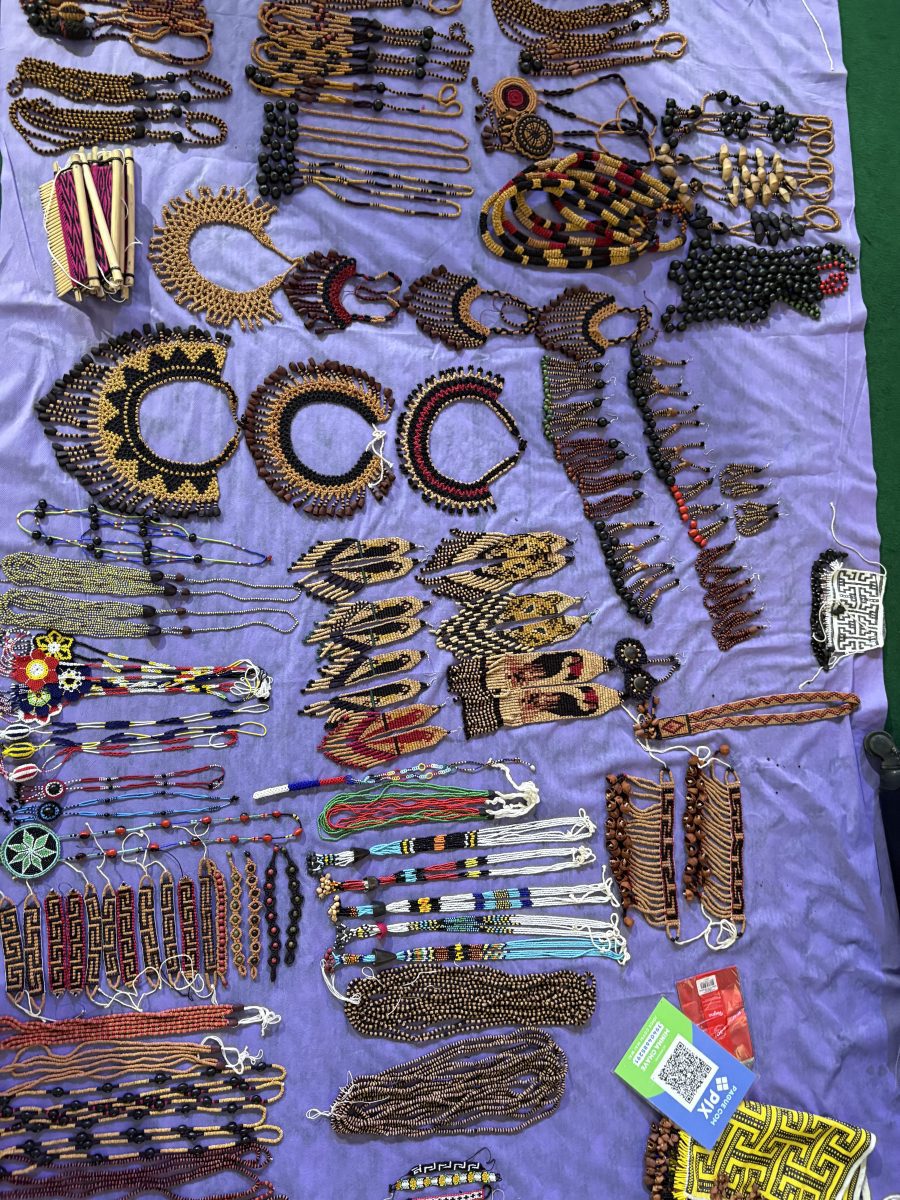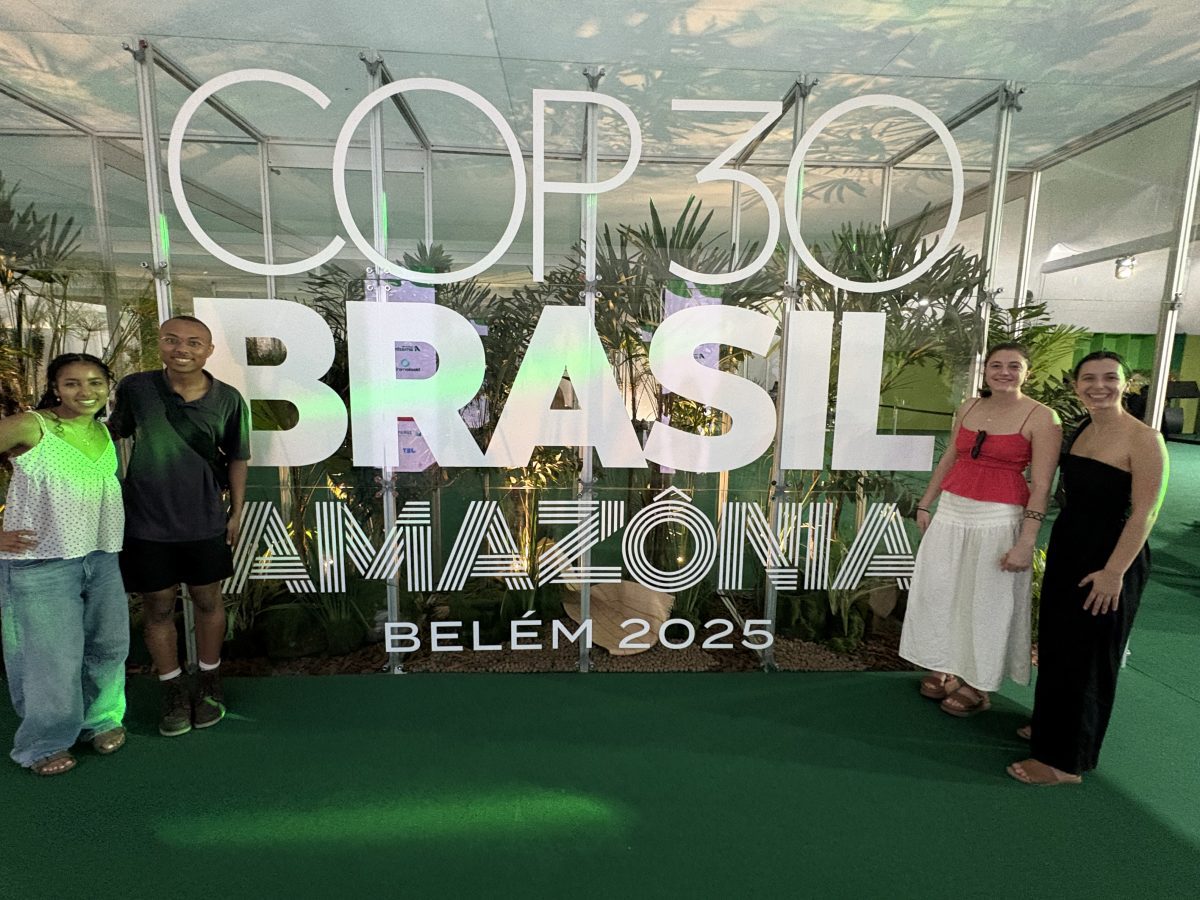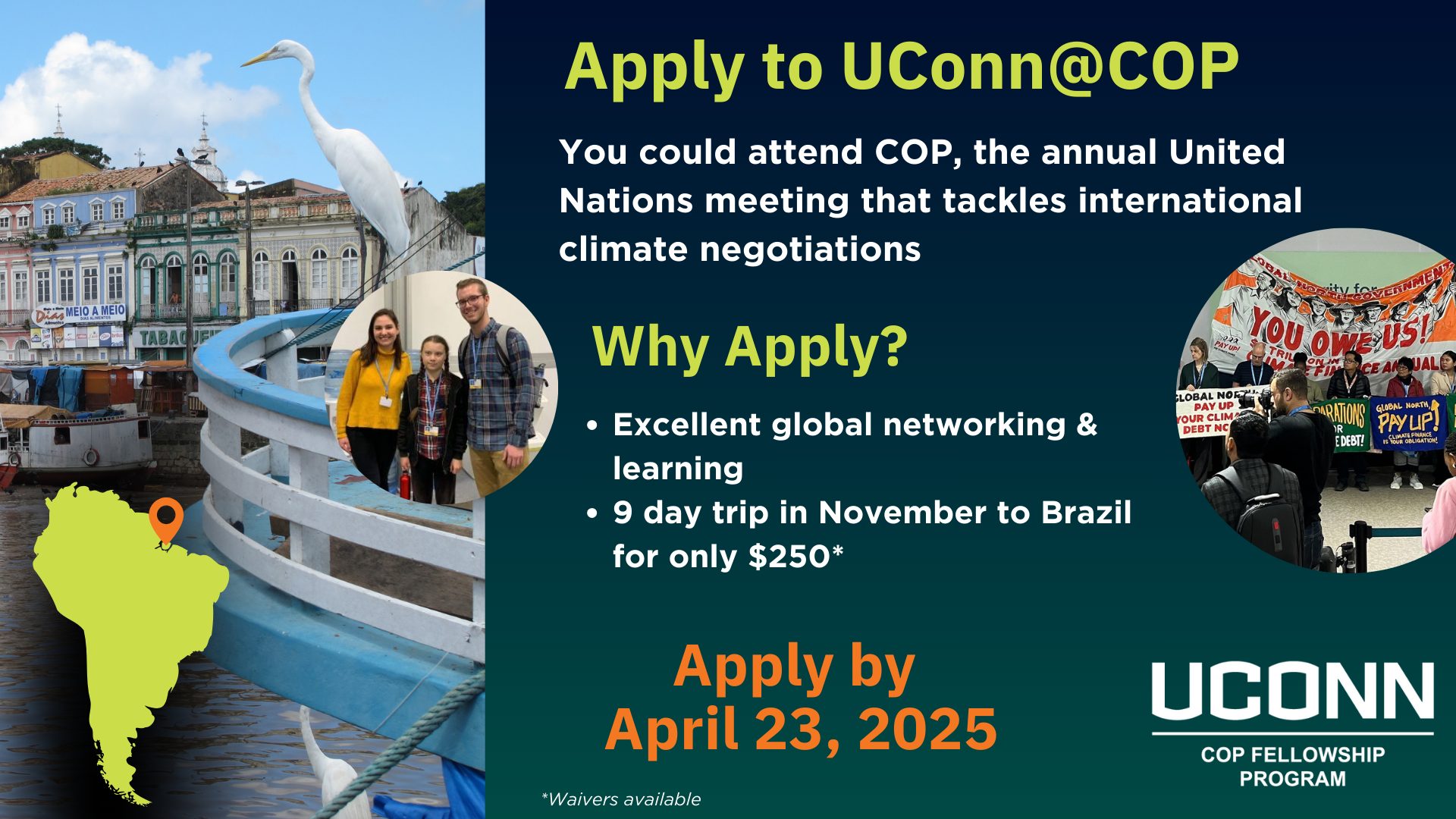
Attending COP@30 has been a privilege; it has offered me the opportunity to engage with people from all over the world and hear diverse perspectives on climate solutions. The conference is well organized overall, though the usual delays in starting meetings were noticeable. With negotiations, side events, and pavilion talks happening simultaneously, it can quickly become overstimulating; however, I have already learned so much from the wide range of sessions I’ve attended.
The most meaningful part of COP@30 for me has been speaking directly with delegated and youth representatives. I had an amazing conversation with a student from the University of Oslo representing YOUNGO – the official children and youth constituency of the UNFCCC. We discussed pathways for youth involvement, and the types of actions young people have taken within the climate movement. I also had the opportunity to speak with members of both the French and Algerian delegation including Algerian negotiator Khaled Bassim with whom I discussed elements of the Sharm El-Sheikh Implementation Plan, which focuses on operationalizing funding for loss and damage, since there had been a new report about it posted the previous night.
Despite how valuable these conversations have been, the negotiations remain (in my opinion) the most interesting part of my experience. Negotiations take place in large rooms filled with country representatives, each attempting –often unsuccessfully- to reach a consensus. So far, two negotiations in particular have deeply shaped my understanding. The first was “Climate Change and Mountains” and the second one was “Special Needs and Circumstances of Africa”, which happened on Monday – my first day at the COP. This last session was intended to address four concrete agenda points outlined by the COP President, yet none of the points were discussed. As the delegate form the United Republic of Tanzania put it, the session devolved into a “vulnerability contest” between Africa versus the rest of the world. Countries such as Chile, Panama and Guatemala questioned why a meeting focused on Africa was necessary, arguing that many developing regions face equal levels of suffering. Most Latin American countries spoke in similar alignment under ILAc (Independent Alliance of Latin America and the Caribbeans). The delegates from South Africa and the African Group attempted –unsuccessfully- to bring the discussion back to the agenda reminding the room that despite contributing less than 4% of global emissions, Africa is both one of the least responsible and most vulnerable regions, projected to surpass the 1.5C threshold as early as 2040.
 In response, one of the delegates argued that the meeting violated Article 4.8 of the Paris Agreement, which in my opinion was a complete misinterpretation. Article 4.8 emphasized equity and differentiated responsibilities, not uniform treatment under different circumstances. The entire meeting felt unproductive and at times, unprofessional, with several parties appearing to delay the conversation instead of contributing to it, which is why I am looking forward to reading the official written report of this meeting!
In response, one of the delegates argued that the meeting violated Article 4.8 of the Paris Agreement, which in my opinion was a complete misinterpretation. Article 4.8 emphasized equity and differentiated responsibilities, not uniform treatment under different circumstances. The entire meeting felt unproductive and at times, unprofessional, with several parties appearing to delay the conversation instead of contributing to it, which is why I am looking forward to reading the official written report of this meeting!
Overall, there are countless negotiations happening at all times. A lot of them are focused on specific paragraphs of previous agreements which are very interesting, but I especially enjoy the presidency-led meetings where the structure is clearer and discussions more focused.
Over the next few days, I plan to continue speaking with delegates from different countries, attend additional negotiations, and ask questions whenever possible. This experience has already expanded my understanding of international climate diplomacy, and I am excited to continue learning!
Malak Nechnach is a senior studying Physiology and Neurobiology with a minor in Mathematics.
 T
T

 There is so much more I could go on about and so many valuable observations and pieces of information I have learned in the first 3 days I have spent at COP. I will quickly fire off some final thoughts (some inspiring and some discouraging) since landing in Belem: The culture in the Amazonia region of Brazil is deep and rich, the Indigenous Tribes in Brazil do not feel like their voices are getting proper representation in the conference, it is controversial that Brazil is advocating for Rainforest conversation while expanding oil drilling, it is crazy that international legislation is being written before my eyes, and how can any real action come from these “agreements” that are only enforceable by “peer pressure” and driven by economic benefits?
There is so much more I could go on about and so many valuable observations and pieces of information I have learned in the first 3 days I have spent at COP. I will quickly fire off some final thoughts (some inspiring and some discouraging) since landing in Belem: The culture in the Amazonia region of Brazil is deep and rich, the Indigenous Tribes in Brazil do not feel like their voices are getting proper representation in the conference, it is controversial that Brazil is advocating for Rainforest conversation while expanding oil drilling, it is crazy that international legislation is being written before my eyes, and how can any real action come from these “agreements” that are only enforceable by “peer pressure” and driven by economic benefits?

 UConn Gives
UConn Gives